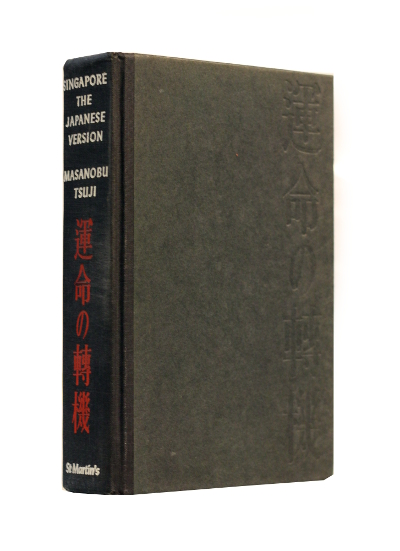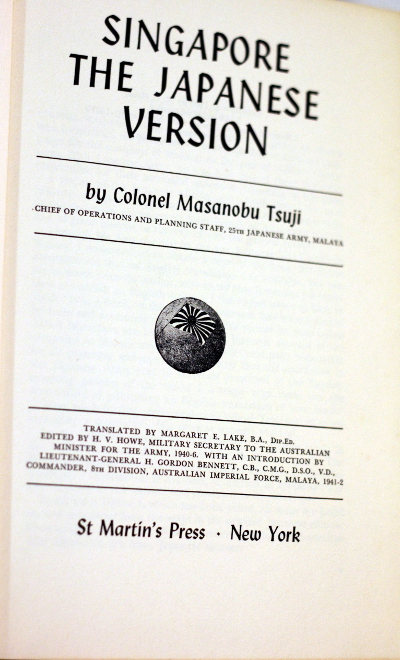About the book (from jacket flap):
Seventy days that shook the Western world…that was the Malayan campaign of World War II. In book after book the sorry details of Britain’s defeat have been debated. One after another the witnesses for the defence – the generals, the war historians, the correspondents – have had their say.
Now, translated for the first time into English, comes the crushing evidence for prosecution – the story, not of how Malaya was lost, but of how it was won. This book is by the key man – the brilliant strategist who led the research work for the campaign, and who, as Chief of the Operations and Planning Staff of the 25th Army under General Yamashita, initiated the vital operations orders in the field from the landing at Singora to the surrender on Singapore Island.
About the author (from Wikipedia):
Masanobu Tsuji (11 October 1901 – 1961) was a tactician of the Imperial Japanese Army during the Second World War and later a politician. He was responsible for developing the detailed operational plans that allowed for the successful Japanese invasion of Malaya at the outbreak of the war. He would also go on to take part in planning the final offensive during the closing stages of the Guadalcanal campaign. While he was never indicted for war crimes after World War II, subsequent investigations have revealed that he was involved in or contributed to the execution of various war crimes throughout the Pacific war including the massacre of Chinese civilians in Singapore, the mistreatment and executions of prisoners of war during the Bataan Death March, the executions of captured government officials of the Philippines, and other war crimes in China. Masanobu Tsuji was regarded as the most notorious Japanese war criminal to escape trial after the war. He was a leading proponent of the concept of gekokujō, “leading from below” or “loyal insubordination” by acting without or contrary to authorization.



